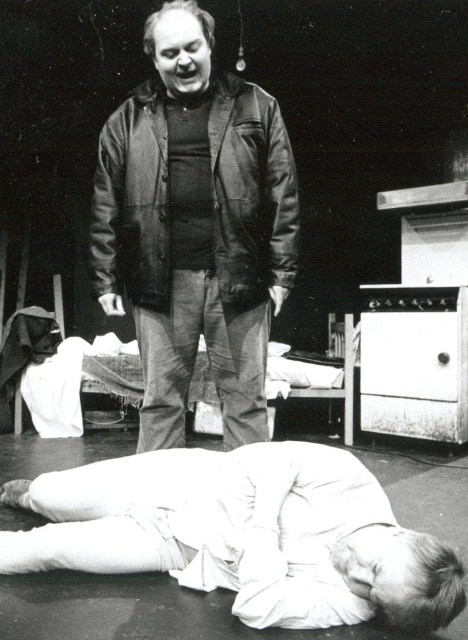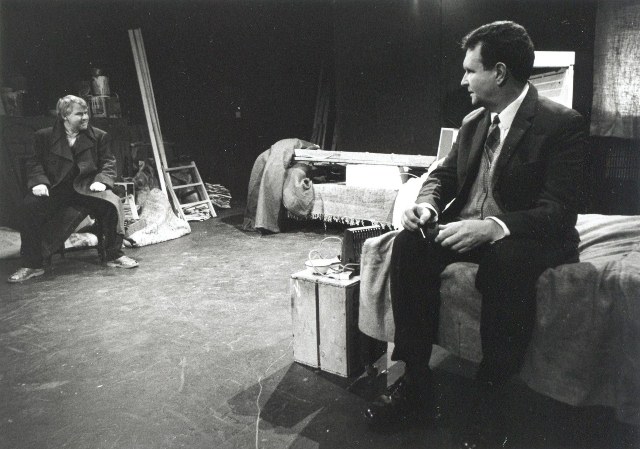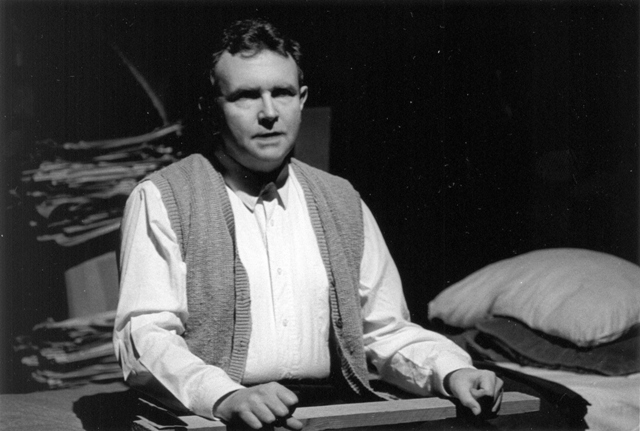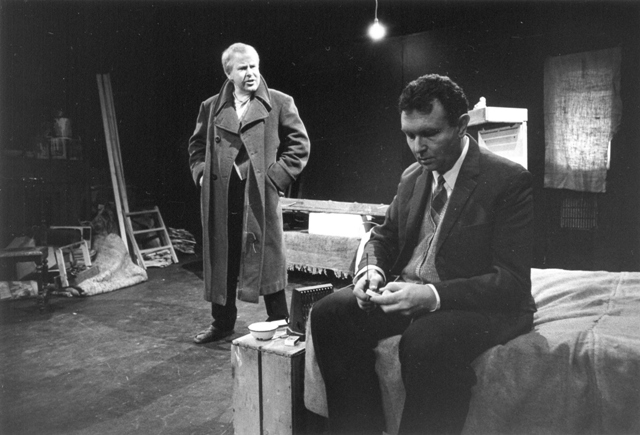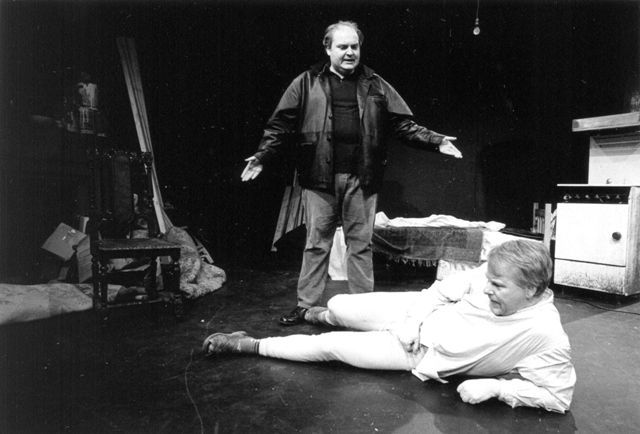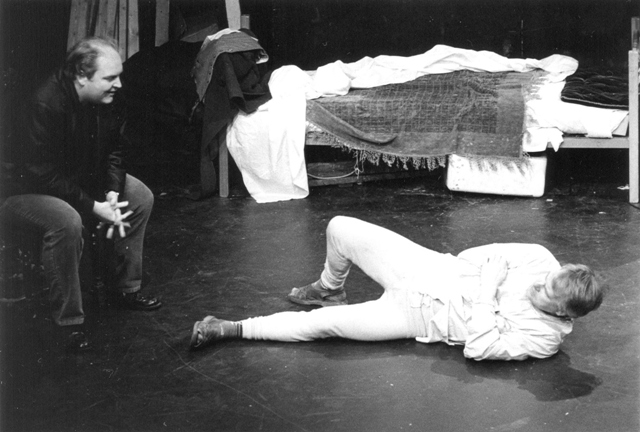The Bench Production
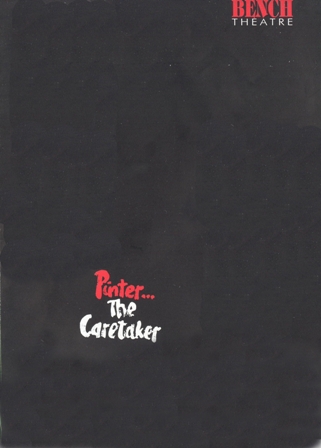
This play was staged at Havant Arts Centre, East Street Havant - Bench Theatre's home since 1977.
Characters
| Mick | Mark Wakeman |
| Aston | David Penrose |
| Davies | Andy Rees |
Crew
| Director | Pete Woodward |
| Stage Manager | Stuart Monk |
| Music written and played by | Sally Banerjee |
| Lighting Design | Jacquie Penrose |
| Lighting and Sound Operation | Alice Corrigan |
| Handbill Design | Peter Woodward |
| Front of House | Alan Welton |
Director's Notes
Between 1960 and 1964 I was a student at Portsmouth Art College. In 1962, two years after The Caretaker was first staged, a drama group was formed and during my time there, three plays were produced; Sgt. Musgraves Dance, Dumb Waiter and The Caretaker. I was lucky enough to be involved with the first two, but the play that impressed me most was The Caretaker.
I think I understood what Davies, Mick and Aston were doing (that seemed straightforward) but what they were saying and thinking was always slippery and fascinating. That was what attracted me to the play then, and it still does now. I'm convinced that Pinter's plays are basically simple - it's just the people in them that are complicated.
The Caretaker has been thoroughly enjoyable to work on and I would particularly like to thank the cast; Andy, Mark and David for their work and commitment to the play. I hope you enjoy it.
Pete Woodward
Reviews
The NewsMike Allen
Tramp steals the show, but where's the humour gone?
The thing to remember, in Harold Pinter's plays, is that they are about people rather than ideas. So the question to ask is not what his work means but what it tells us about humanity.
Bench Theatre's production of The Caretaker presents three characters sharply-drawn: a tramp taken off the streets and two brothers who give him a do-nothing job as caretaker in a run-down house. They communicate with him as he worms his way inexorably towards a position of control, and the brothers' lack of communication with each other conceals a fierce mutual loyalty.
The tramp and one brother, as played by Andrew Rees and Mark Wakeman, expertly exude menace - one through open truculence, the other through oblique smiles and brief explosiveness. But the performance to savour is David Penrose's as the brain-damaged Aston. His flat tones and shuffling walk sound and look simple but are searingly expressive of inner pain. He also catches the dryness of Pinter's humour with apparent effortlessness, but if Peter Woodward's thoughtful production has a weakness it is that it's generally not funny enough. The other two actors' timing and delivery of potentially comic lines needs to be a touch more pointed. Until January 30.
The News, 22nd January 1999
